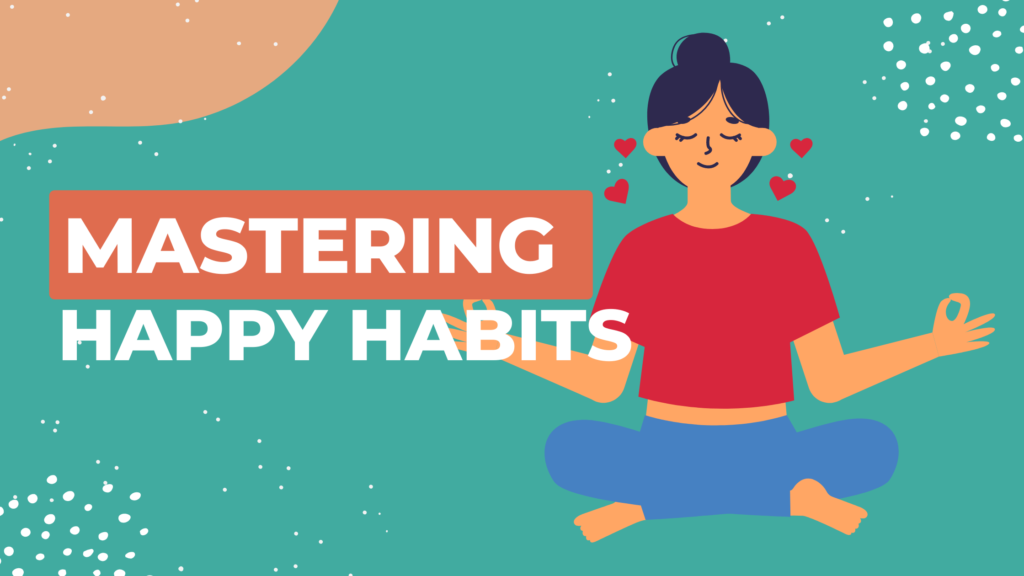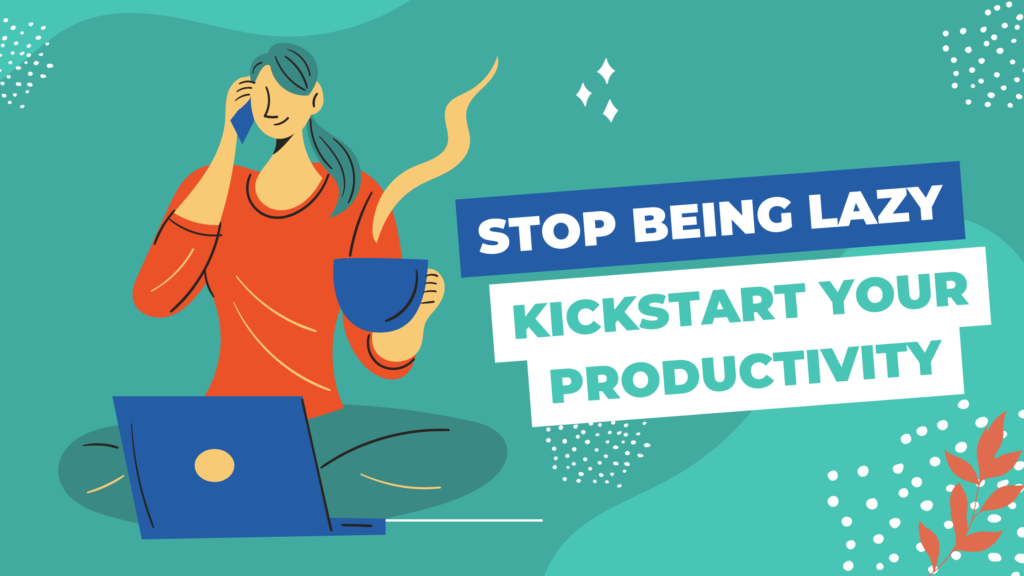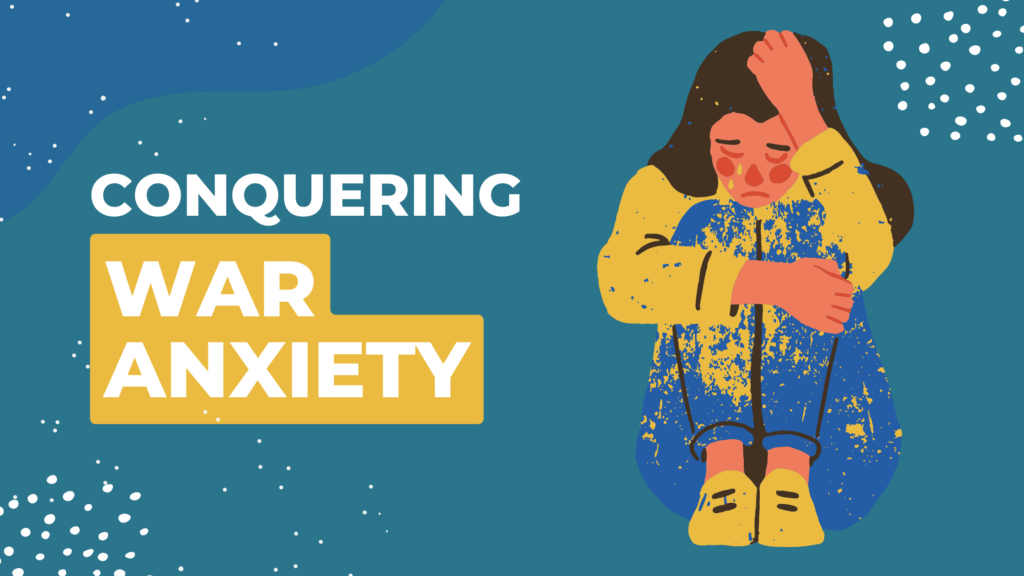What Happy Habits Are
Have you ever wondered why some people always seem to be happy, even when facing challenges and difficulties? The answer is simple: they have developed happy habits that help them maintain a positive outlook on life. Happy habits are daily practices that promote well-being and happiness. They are actions and behaviors that we do automatically, without thinking about them. These habits can be developed over time with regular practice, and they can have a significant impact on our mood, mental health, and overall happiness.
Importance of Developing Happy Habits
Research shows that cultivating happy habits can have a range of positive benefits. For example:
- A meta-analysis of 225 studies found that positive emotions were associated with better physical health outcomes, including lower rates of chronic diseases and longer life expectancy. (Source: Psychological Bulletin)
- A study of over 1,000 adults found that those who reported higher levels of happiness had better social relationships, including more supportive friendships and stronger romantic partnerships. (Source: Journal of Happiness Studies)
- Research has also shown that cultivating positive emotions through practices such as mindfulness meditation and gratitude journaling can lead to increased feelings of happiness and well-being. (Sources: Harvard Health Publishing, Journal of Positive Psychology)
Developing happy habits can improve our overall well-being and help us live happier, more fulfilling lives. Happy people have a better quality of life, experience less stress, and have stronger social connections. They are also more productive and successful in their personal and professional lives.
In this article, we’ll explore the science behind happiness, the power of habits, and the benefits of cultivating happy habits. We’ll also provide you with a list of happy habits that you can start practicing today and offer tips for overcoming obstacles that might get in the way. By the end of this article, you’ll have the knowledge and tools you need to start developing happy habits that will transform your life. Let’s get started!
Understanding Happiness: What is Happiness?
Happiness is a subjective experience that can be difficult to define. It’s a feeling of joy, contentment, and fulfillment that arises from within us. While happiness can be influenced by external factors, such as our relationships, work, and environment, it ultimately comes from within us. Some people may experience happiness as a sense of inner peace, while others may feel it as excitement or elation.
The Science Behind Happiness
In recent years, there has been an explosion of research on the science of happiness. Studies have found that happiness is associated with a range of positive outcomes, including better physical health, stronger social connections, and increased productivity. One theory that has gained traction in the scientific community is the “happiness set point” theory, which suggests that our happiness levels are determined by a combination of genetics and life experiences. While we may experience temporary boosts in happiness from positive events, such as getting a promotion or going on vacation, our overall level of happiness tends to return to our set point over time.
The Benefits Of Being Happy
Research has shown that being happy can have a range of positive benefits. For example:
- Happy people are more likely to have fulfilling relationships, be successful in their careers, and have better physical and mental health. (Source: Harvard Health Publishing)
- A study by the University of Warwick found that happy workers are 12% more productive than those who are unhappy. (Source: Forbes)
- Happiness has also been linked to lower rates of depression, anxiety, and stress. (Source: Mayo Clinic)
These are just a few examples of the benefits of being happy. By understanding the science behind happiness and the benefits of cultivating happy habits, we can start to take concrete steps towards living happier, more fulfilling lives.
Habits and How They Affect Our Lives
Habits are the small actions and routines that we perform regularly without even thinking about them. They are the things we do every day, such as brushing our teeth, checking our phones, or drinking coffee in the morning. Here is a closer look at habits and how they affect our lives:
What Are Habits?
Habits are automatic behaviors that are triggered by specific cues or stimuli. They are formed through repetition and reinforcement, as our brains learn to associate certain actions with specific outcomes. Habits can be both good and bad, and they play a significant role in our daily lives.
The Power of Habits
Habits are incredibly powerful, as they can have a profound impact on our lives. Good habits, such as regular exercise or healthy eating, can lead to improved physical and mental health, increased productivity, and a more positive outlook on life. Bad habits, on the other hand, such as smoking or procrastination, can have negative effects on our health, relationships, and overall well-being.
How Habits Shape Our Lives
Our habits shape our lives by influencing our thoughts, behaviors, and emotions. They can determine our level of success, happiness, and fulfillment, and they can also contribute to our overall sense of purpose and meaning. Developing positive habits can help us achieve our goals, while breaking bad habits can lead to personal growth and transformation.
In conclusion, habits are an essential part of our lives, and they have a significant impact on our overall well-being. By understanding what habits are, their power, and how they shape our lives, we can take steps to develop positive habits that support our goals and help us lead happier, healthier lives.
Happy Habits to Cultivate
Happiness is not a destination, it’s a journey. Cultivating happy habits is the key to enjoying the journey. Here are some habits that can help you live a happier life:
Mindfulness practices
- Meditation
Meditation is an ancient practice that has been used for centuries to promote inner peace and wellbeing. It’s a simple technique that involves focusing your attention on your breath or a specific object to calm the mind and reduce stress. According to research, meditation can increase positive emotions, reduce anxiety, and improve overall well-being.
- Gratitude
Gratitude is the practice of focusing on the positive aspects of your life and expressing appreciation for them. It’s been shown to increase happiness, improve relationships, and reduce stress. A simple way to practice gratitude is by keeping a gratitude journal, where you write down three things you’re thankful for each day.
- Self-compassion
Self-compassion is treating yourself with kindness and understanding, especially during difficult times. It involves recognizing that everyone makes mistakes and that it’s okay to not be perfect. Research has shown that self-compassion can increase happiness, reduce stress, and improve self-esteem.
Physical practices
- Exercise
Exercise is not only good for your physical health, but it’s also good for your mental health. It releases endorphins, which are chemicals in the brain that promote feelings of happiness and wellbeing. Regular exercise has been shown to reduce symptoms of depression and anxiety, improve sleep, and increase self-esteem.
- Healthy Eating
What you eat can have a significant impact on your mood and energy levels. A balanced diet that includes whole grains, fruits, vegetables, lean protein, and healthy fats can help you feel more energized and improve your overall well-being.
- Rest and Sleep
Getting enough rest and sleep is essential for your mental and physical health. Lack of sleep can lead to irritability, mood swings, and decreased productivity. It’s recommended to aim for 7-9 hours of sleep per night for adults.
Social Practices
- Connecting with Loved Ones
Having strong social connections is an important aspect of happiness. Spending time with loved ones, such as family and friends, can improve your mood and reduce feelings of loneliness. It’s important to prioritize relationships and make time for meaningful connections.
- Acts of Kindness
Performing acts of kindness, such as volunteering or helping others, can increase happiness and improve overall well-being. It can also improve your sense of purpose and connection to your community.
- Helping Others
Helping others can also be a source of happiness. It can give you a sense of fulfillment and satisfaction, knowing that you’re making a positive impact on someone else’s life. Even small acts of kindness, such as holding the door open or giving a compliment, can make a difference.
By incorporating these happy habits into your daily routine, you can increase your overall well-being and lead a happier, more fulfilling life.
Overcoming Obstacles to Developing Happy Habits
Lack of Time
One of the most common obstacles to developing happy habits is a perceived lack of time. However, studies have shown that even short bursts of activity can lead to significant improvements in mood and well-being. To overcome this obstacle, it’s important to prioritize happy habits by setting aside a specific time for them each day. This could be as simple as taking a few minutes to meditate in the morning or going for a short walk during a lunch break.
Lack of Motivation
Another common obstacle to developing happy habits is a lack of motivation. It can be difficult to stay committed to a new habit, especially when the results aren’t immediately noticeable. To overcome this obstacle, it’s important to find ways to stay motivated. One way to do this is by setting goals and tracking progress. For example, if your happy habit is to exercise more, set a goal to run a 5k in a few months and track your progress along the way.
Fear of Failure
Fear of failure can also be a significant obstacle to developing happy habits. Many people are afraid to try new things because they fear they won’t be successful. However, it’s important to remember that failure is a natural part of the learning process. To overcome this obstacle, it’s important to adopt a growth mindset and focus on progress rather than perfection. Celebrate small successes along the way and view setbacks as opportunities to learn and grow.
Procrastination
Procrastination is another obstacle to developing happy habits. It can be easy to put off starting a new habit, especially if it requires effort or discomfort. To overcome this obstacle, it’s important to break the habit down into small, manageable steps. For example, if your happy habit is to meditate, start with just a few minutes a day and gradually increase the time. Additionally, it can be helpful to find an accountability partner or join a community of people who share similar goals. This can provide support and encouragement when motivation wanes.
Tips for Developing Happy Habits
Developing happy habits can be challenging, but there are ways to make the process easier and more effective. Here are some tips to help you cultivate happy habits and integrate them into your daily routine:
Start Small
When it comes to developing happy habits, it’s important to start small. Trying to make too many changes at once can be overwhelming and lead to failure. Instead, choose one habit to focus on and commit to practicing it consistently. Once you have successfully integrated that habit into your routine, you can move on to another one.
Make It a Daily Practice
Consistency is key when it comes to developing happy habits. It’s important to make the habit a daily practice and to integrate it into your daily routine. For example, if you want to start meditating, set aside a specific time each day for your meditation practice, such as first thing in the morning or before bed.
Hold Yourself Accountable
Holding yourself accountable can help you stay motivated and committed to your happy habits. You can do this by tracking your progress, setting goals, and rewarding yourself for meeting those goals. You can also enlist the support of a friend or family member to help keep you accountable.
Celebrate Your Progress
Celebrating your progress can help you stay motivated and make developing happy habits more enjoyable. Take time to acknowledge and celebrate your successes, whether it’s through journaling, rewarding yourself, or sharing your progress with others.
By following these tips, you can develop happy habits that will improve your overall well-being and quality of life. Remember, the key is to start small, make it a daily practice, hold yourself accountable, and celebrate your progress.
Conclusion
The Importance of Happy Habits
Developing happy habits is essential to leading a fulfilling and meaningful life. By cultivating practices that promote happiness and well-being, we can improve our overall quality of life and enhance our ability to cope with stress and adversity.
Encouragement to Start Developing Happy Habits
If you’re not already incorporating happy habits into your daily routine, now is the perfect time to start. Remember, small changes can make a big difference, and it’s never too late to start taking steps towards a happier, healthier life.
So, take some time to reflect on the habits that would bring you more happiness and begin incorporating them into your daily routine. Whether it’s through mindfulness practices, physical activity, or social connection, you can begin to experience the benefits of happy habits right away.
In conclusion, by committing to developing happy habits, you’ll be taking a positive step towards a more fulfilling and joyful life. So, don’t hesitate – start cultivating your happy habits today!




